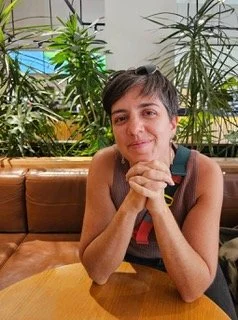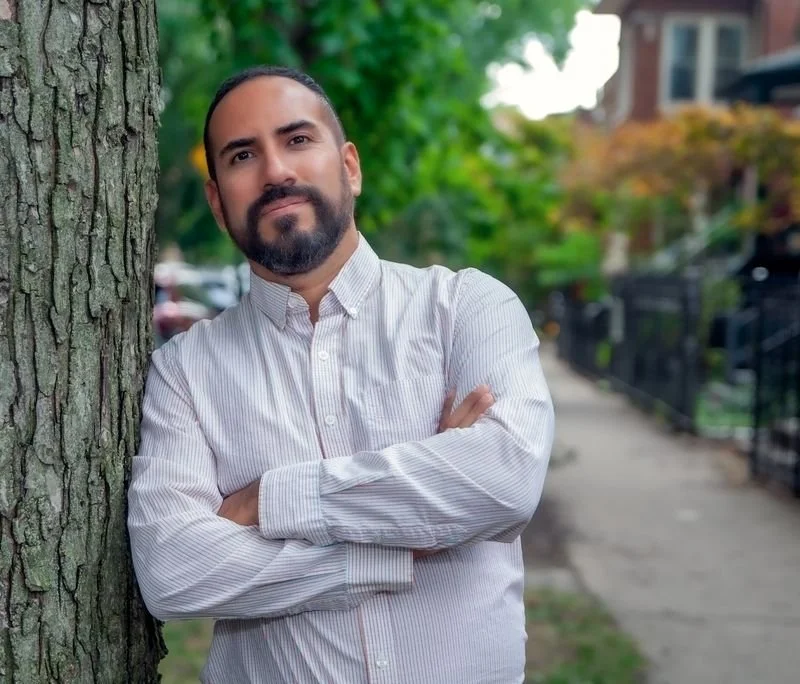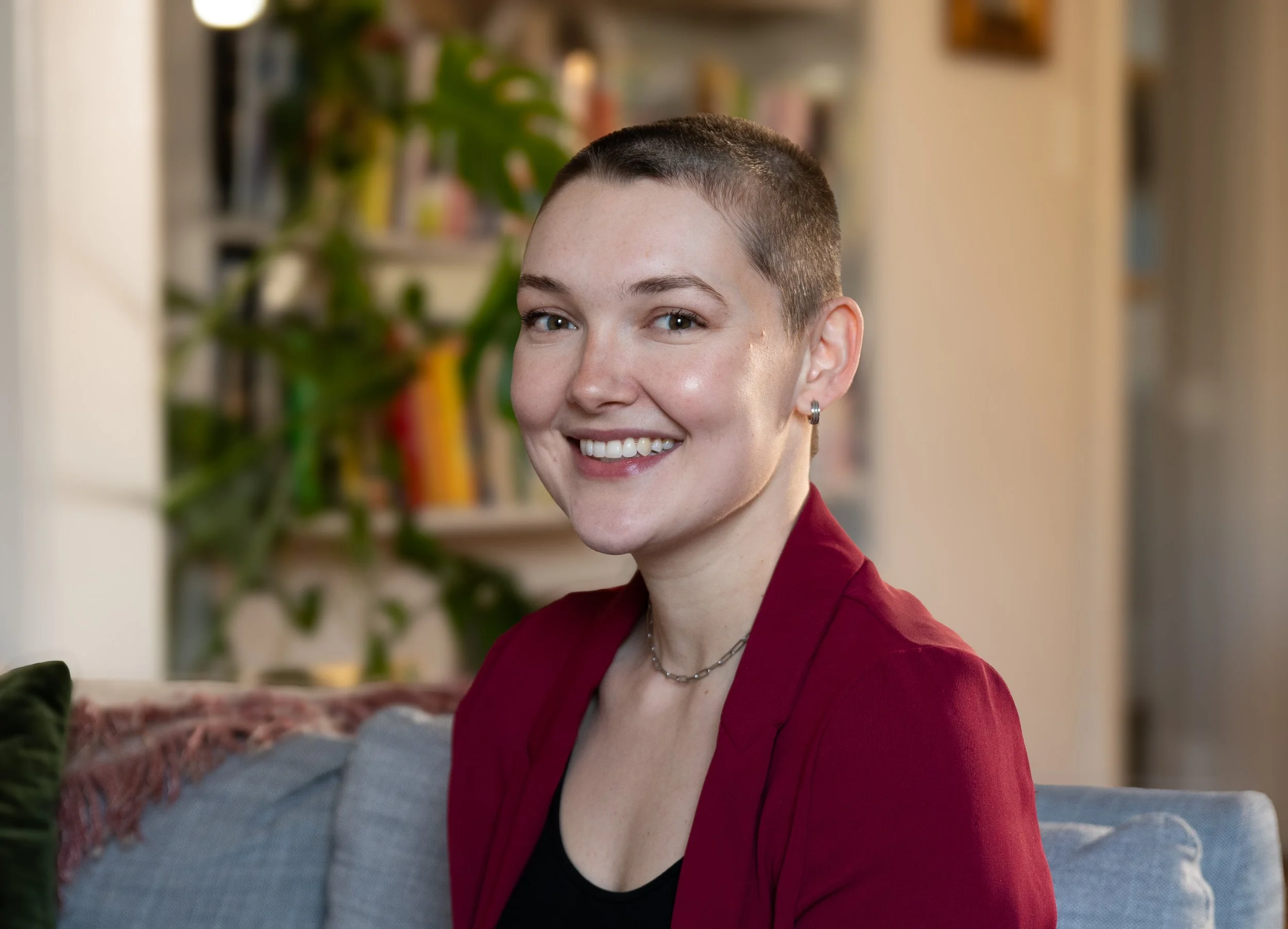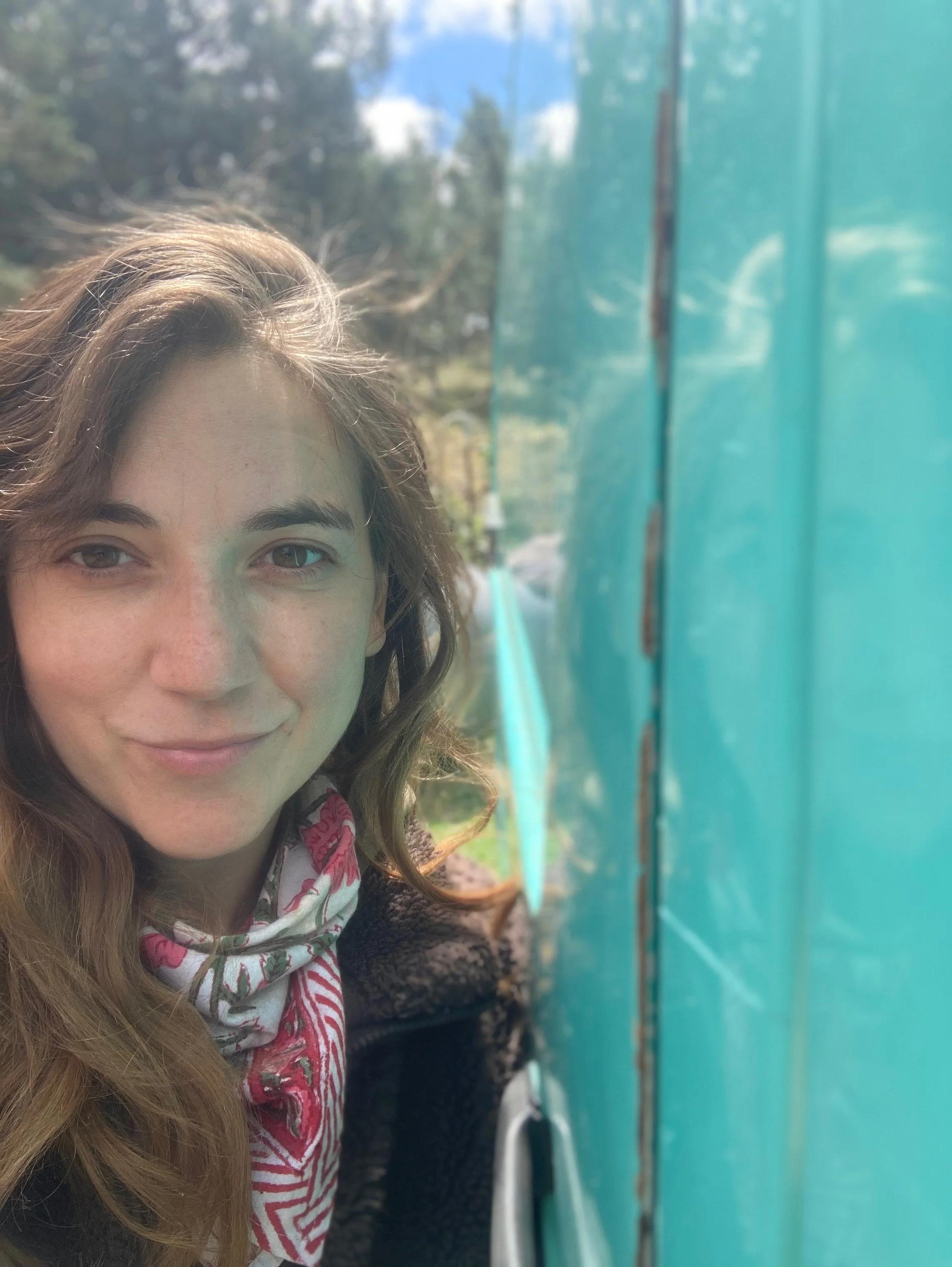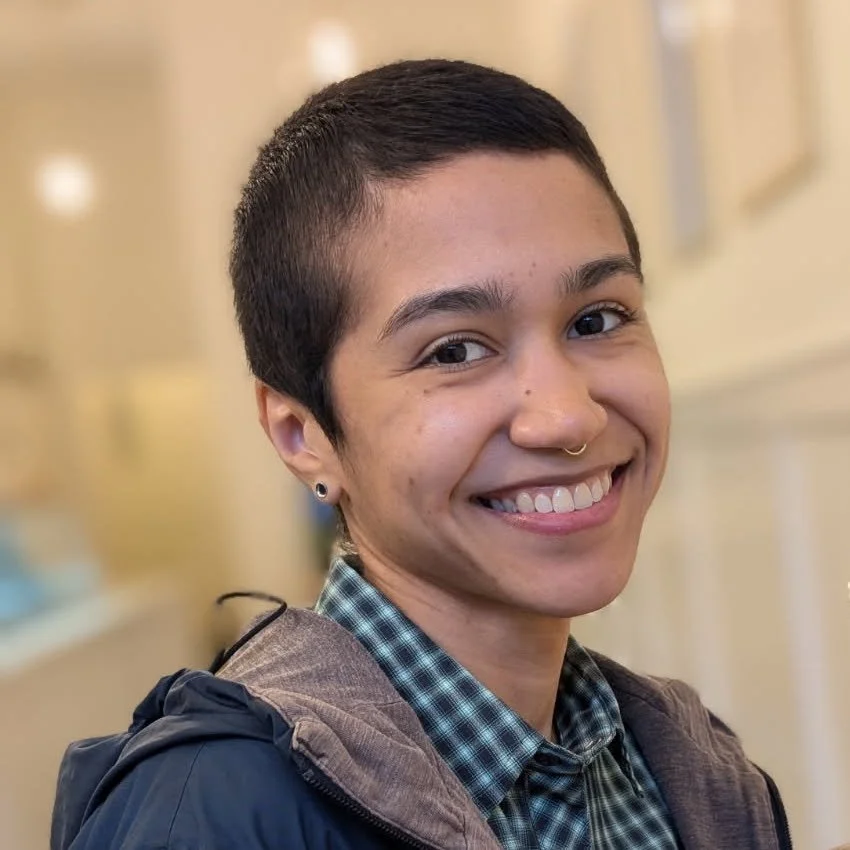DeSchool 2025
Workshop Descriptions & Presenter Information
Saturday, July 26: Challenging Growth
10:30AM-11:30AM
Challenge to Growth 101: Has the Economy Outgrown the Planet?
Jason Barahona Rosales, John Mulrow
An introduction to challenging endless growth as an extension of sustainability and social advocacy, meant to stimulate more questions than answers going into our weekend together! This presentation will walk through our degrowth introductory brief: www.degrowthinstitute.org/challenge-growth01
11:45AM-1:00PM
Ecological Economics 101
Jack Hammond
This session will provide an introduction to ecological economics and how economic systems can be designed to operate within planetary boundaries while prioritizing well-being over endless growth. Participants will learn about the limitations of GDP as a measure of progress and will explore how ecological economics relates to the broader topic of degrowth. The session will feature presentations from two speakers followed by interactive, small group discussions.
11:45AM-1:00PM
Communicating Degrowth in North America
Jason Barahona Rosales, Tim Linaberry, Fanny Rabinovitch-Kuzmicki, Emilia Reyes
Talking degrowth to the general public: how can we, as proponents of degrowth/post-growth, engage with people from all walks of life in meaningful dialogue? Hopefully, walking away from this session we will all have learned more about different types of conversational approaches that can be specifically (and most-pertinently) applied with a North American context.
11:45AM-1:00PM
From Degrowth to Decolonization
Mariam Abazeri, Diego Arispe-Bazán, Ashley Lagrange, Jennifer Trujillo Obando
The degrowth movement in North America must contend with the enduring realities of colonization, genocide and destruction of Indigenous lifeways. Decolonization – of ourselves, our culture, our political systems and our economies – is at the heart of degrowth in a settler-colonial context. This panel brings together degrowth scholars and activists to discuss the role of degrowth in the broader movement for decolonization and Indigenous sovereignty, and how we can work at decolonizing the culture and economies of the Global North.
2:15PM-3:45PM
Debating Degrowth
Otis Pitney
Let’s get some practice debating Degrowth in our spheres of influence! How do the topic areas, types of language, and goals of our conversations with others about Degrowth need to change depending on who we are talking to? Using roleplay techniques we will practice communicating Degrowth to skeptical Republican uncles, staunch capitalist centrist co-workers, green growth progressives, or anyone else in your own orbit. We’ll discuss and crowdsource wisdom around the balance between ‘hard truth’ and positive visioning, between speaking and active listening, and between urgency and contextual, realistic relationality.
2:15PM-3:45PM
Offers and Needs Market
Elise O'Malley
The Offers and Needs Market is a 90-minute guided process during which we will discover and exchange resources within our ~12 person group. These resources can include passions, skills, and even physical items! No preparation is needed; you'll only need to bring yourself.
2:15PM-3:45PM
Social Change Through Cultural Transformation
Andras Ferencz, Heather Higinbotham, Aaron Karp
While our material reality shapes our thoughts, we also mold the world in the shape of our beliefs, opinions, and internal narratives. Accordingly, degrowth argues that to change the material reality of our current, unsustainable society, we must simultaneously challenge the dominant idea of infinite economic growth. This learning session will discuss the critical importance of ideas in the process of social change; how we can build the inner qualities necessary for a complex transition; and ways to navigate our grief as we let go of the past while we embrace new and unfamiliar ways of knowing and being.
4:00PM-5:00PM
Why Degrowth Needs Relationality
Ronald Trosper
For people to reduce their use of things, an orientation away from individualism and to relationships is needed. Affluence built on relationality will be different. Consensus-making becomes important. Restoration of relationships with nonhumans is part of the need. Indigenous peoples want to help.
Sunday, July 27: Degrowth Deep Dives
11:45AM-1:00PM
Challenge to Growth 201: What Happens to the Savings?
Hayden Dahmm, John Mulrow
This session builds on a key point from Challenge to Growth 101: "because the economy must grow, the ecological space created by impact-reduction efforts is at risk of attracting new economic activity, not lasting restoration." Let's dive into the so-called Jevons Paradox and explore the intertwined histories of technological advancement and its social and ecological promises - delivered and deferred.
The New Economy in Practice: Cooperatives, Time Banks, and More!
Suzanne Keers, Celeste Levitz-Jones, Jonathan Pereira, Mike Strode
As competitive, extractive economic models collapse across the world, what new systems can we build to meet our needs in the coming era? Across the country and around the world, people are building and honing new economic models that de-emphasize endless growth and center the wellbeing of people and place. This panel brings together practitioners of the new economy, from cooperatives to time banks to circular economies, to discuss the lessons they’ve learned and their visions for the next system.
11:45AM-1:00PM
11:45AM-1:00PM
Revolutionary Ecosocialism with DegrowNYC
Ashley Lagrange
In this presentation, a member of DegrowNYC will share the journey and lessons of the organizations development structurally and politically. DegrowNYC is a group of organizers of color based in occupied Lenapehoking who view degrowth as a revolutionary process and a form of ecological reparations.
2:15PM-3:45PM
Degrowth, Militarism and Racial Capital
Mariam Abazeri
With more American taxpayer money budgeted to the U.S. military than ever before and the reciprocating military build-up among major global powers, what does the increase in global militarism mean for environmental and climate activists, and more specifically, the degrowth movement? This workshop explores the connections between global militarism, the environmental and climate crises, and the racial capitalist systems that are reified through the destruction of people and places around the world. By building on insights from resistance scholars and activists from various movements including disability, Indigenous, and abolition justice, participants will learn how these diverse movements share common goals in anti-capitalist and anti-militarist struggle and how they connect to a more environmentally sustainable and just vision of a good life.
2:15PM-3:45PM
Steady Statesmanship: Public Policy for Degrowth Toward a Steady State Economy
Brian Czech
The purpose of this session is to introduce the core policy principles for a degrowing or steady state economy. Specific policy reforms will also be presented. Some political context will be included.
2:15PM-3:45PM
Games & Simulations
Zach Czuprinsky, Miriam Stevens, Mike Strode
Games open the imagination and are great forms of learning through simulated action. Participate in board and simulation games that are designed to make the players take on real world challenges albeit on a much smaller (and hopefully more fun) scale. Games include Co-opoly, The International Trade Game, “Serious” Games, and Life Reimagined (Board Game).
4:00PM-5:30PM
"The North of the North" - Decolonial Feminist Perspectives from the Global South
Emilia Reyes
Degrowth is a timely proposal from the Global North to tackle ecological breakdown and rising inequalities between and within countries. Its reliance on macro and global analysis, alongside its call for urgent measures, makes degrowth a very pertinent framing for the complex solutions demanded of the Global North in a time like this. And yet, despite the macro diagnosis, an important part of the degrowth community focuses on micro solutions. This presentation will address what is the responsibility of the North in the North in tackling the largest challenges of our times.
Monday, July 28: Degrowth Action
10:30AM-11:30AM
Challenge to Growth 301: US at the Crossroads
Jason Barahona Rosales
The USA has a rich history filled with success and tragedy. A serious challenge to endless economic growth at the global level must incorporate the diverse -and often contradictory- cultures, work, and perspectives found here. This presentation aims to use a narrative structure to draw a throughline between the indigenous and constitutional, the calls for a bill of rights and later civil rights, and the activist movements that have characterized the nation. If at DeSchool we are to determine where we are going, we should understand where we have been. In doing so we can identify new and old and forgotten points of solidarity to engender new action informed and strengthened by a challenge to endless economic growth.
10:30AM-11:30AM
Degrowing Fossil Fuel, One Pipeline at a Time: The Fight to Shut Down Enbridge Line 5
Greg Mikkelson
The oil and gas sector must degrow faster than the rest of the economy. Key to that degrowth is decommissioning old pipelines, and preventing new ones. As the highest priority in our Great Lakes watershed, please help shut down “America’s most dangerous pipeline”, Enbridge Line 5!
10:30AM-11:30AM
Degrowth in Higher Education
Malia Becker, Zach Czuprynski
Institutions of higher education working towards sustainability and net-zero goals are often still guilty of pushing for growth – new energy-efficient dorms, an upgraded fleet of electric campus vehicles – at the expense of the planet and the campus community. In fact, they’re often dependent on growth to attract new revenue streams from wealthy investors. This session will provide an overview of where the framework of endless growth currently exists on college and university campuses. Then, we’ll share case studies and examples of degrowth solutions in higher ed and offer space for larger discussions. Come share ideas, connect, and brainstorm over common issues we see in higher education.
11:45AM-1:00PM
Resisting the Authoritarian Playbook: Mutual Aid for the Degrowth Movement
Emma Schoenberg
This workshop draws the connection between the success of civil resistance movements against authoritarian regimes and the rising imperative to build mutual aid networks now as key to reversing the current democratic backslide occurring in the US and tending less-extractive economies. Though case studies and participatory discussion, participants will leave this workshop with a greater understanding of the Authoritarian Playbook by which fascist regimes gain power, an introduction to the strategic tools for building civil resistance, and immediately applicable skills to create the mutual aid projects that will be needed in an era of both rising fascism and collapsing neoliberal capitalism.
11:45AM-1:00PM
Lessons in Community Self-Management with Casa Pueblo: from Gold Mines to Energy Democratization
Johanna Delgado Acevedo
This presentation traces Casa Pueblo’s journey in Adjuntas, Puerto Rico, demonstrating how a grassroots organization transformed a community from resisting destructive gold mining to building energy democracy and self-management. Initially founded to oppose mining that threatened local forests and water, Casa Pueblo evolved into a hub for environmental education, conservation, and community empowerment. Following Hurricane Maria, the organization led efforts to establish solar microgrids, providing power to critical areas while promoting locally controlled, renewable energy systems. Casa Pueblo’s work offers practical lessons in building community resilience through local leadership, participatory decision-making, and the integration of ecological conservation with social justice. It illustrates how community self-management can address environmental, economic, and energy challenges, creating pathways for other communities seeking sovereignty and sustainability in the face of systemic vulnerabilities and climate change.
11:45AM-1:00PM
Perspectives on Degrowth Across Causes, Cultures and Constructs
Anthena Gore
This workshop will guide participants through a systems thinking exercise focused on how they understand and interpret degrowth and what those responses could mean for translating a collective concept of degrowth across causes, cultures, and constructs.
2:15PM-3:45PM
Degrowth Policy Design: Transforming Economic Systems Through Participatory Democracy
Amanda Janoo
In this interactive workshop, participants will be guided through stages of the wellbeing economy policy design process to co-create degrowth policies for the US. Inspired by real world examples, participants will learn how to use participatory policy design processes to develop transformative economic policies.
2:15PM-3:45PM
By Disaster or Design: Post-Growth Finance
Matt Orsagh
A discussion of ecological economics and degrowth, what that means for the financial sector, and what it will take to move to a post-growth economy.
2:15PM-3:45PM
Freeing Food from Markets and Economic Downscaling
Sam Bliss
When food is a market good for sale, the poor starve and farmers are forever forced to compromise their land and values to cut costs. So any desirable degrowth future should consider alternatives to markets for governing the production and distribution of food, right? The workshop will include listening and discussing about cooking and eating, for anyone who gets hungry.
4:00PM-5:30PM
Degrowth Organizing in the US: Movement Town Hall
The US-based degrowth movement is small, but expanding quickly. For some, this weekend may have been full of completely new information, while for others, navigating degrowth organizing in the US has been a central focus for years. As we wrap up our learning at DeSchool and shift our focus towards the future, we’ll ground ourselves in lessons and experiences from the US degrowth movement so far and collectively explore what comes next. This town hall is open to everyone, to ask questions, share wisdom, and collectively shape where the US degrowth movement goes from here.
Tuesday, July 29: Next Steps
9:30AM-11:30AM
Explore the "Wild Mile": The Chicago River's Eco-Park
A docent with Urban Rivers will speak about this network of floating mussel beds, extending over a 700 foot-long chain of interconnected docks. This innovative project functions to improve the river's water quality and restore habitat for an array of native wetland species.
1:15PM-2:30PM
Where Do We Go From Here?
Jason Barahona Rosales, kier blake, Alison Chopel, John Mulrow, Anna Prouty
What are the next steps for the degrowth movement following DeSchool? What have we learned that we can integrate into our actions and research, what new projects can we launch, where can we deepen our ties to one another and collaborate towards a stronger movement going forward? To close out DeSchool, we’ll be exploring all of these topics in a variety of open sessions, focused on community organizing, research collaboration, future event-planning and integrating US degrowth with the international movement. Including:
Academics' Research Collaboration Circle
Degrowth Organizers' Strategy Circle
Future Event Planning: 2026, 2027 and Beyond!
Connecting US Degrowth to the International Degrowth Network
2:45PM-3:45PM
Regional Organizing Break-Outs
Various
Network and organize with other degrowthers in your region. The following are the regions we have so far. As more participants fill out the DeScholar Poll, we will continue to add locations.
Great Lakes
Northeast/New England
Pacific Northwest
New York City
Presenters


